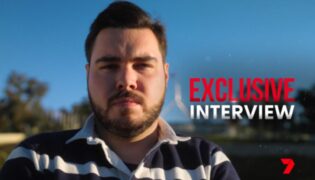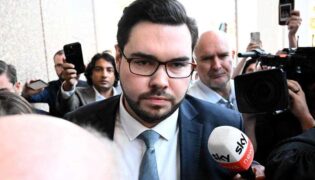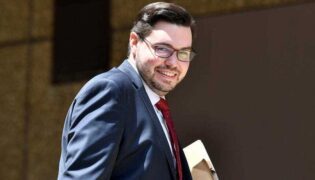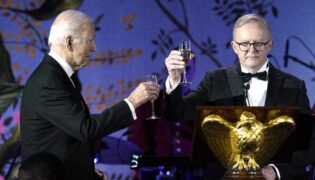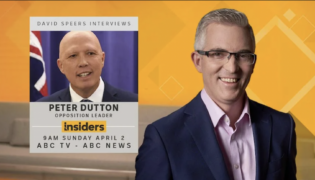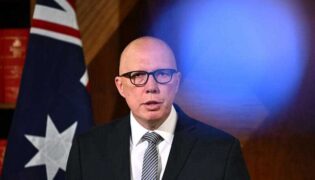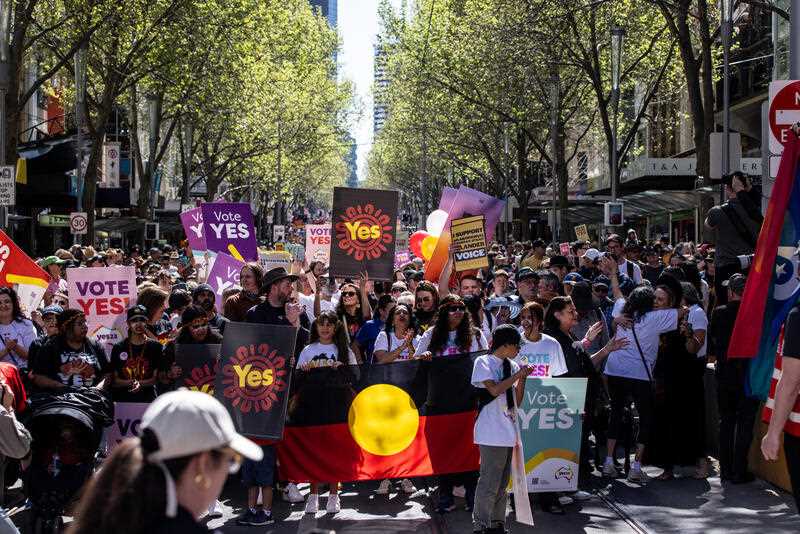
For many, October 14 is already the distant past. Our dark times throw up dark distractions and the only fallout of the failed Voice referendum still preoccupying the political-media class is the impact it might have on the electoral fortunes of the Government. What does it say about the Prime Minister’s judgement, it ponders listlessly, that he didn’t capitulate to Peter Dutton’s cynical opposition and abandon the commitment he made to our First Nations once the always forlorn hope of bipartisanship was quashed, pretending he would not now be equally condemned had he, Rudd-style, squibbed the great moral challenge and gifted a victory to Dutton with nary a fight.
But for our Indigenous brothers and sisters, the pain of the rejection of October 14 cuts still, and deeply, and will for a very long time. They don’t have the luxury of moving on. It is, says Stan Grant, the “morning after the no before”, when Australia opted for, “that word without love, that word of rejection, a word from which no other word can come”. When Australia rejected the Voice from the Heart, writes Claire G Coleman, it broke hers.
Even before the votes were counted came the shrill exculpations from White Australia. It was the cost-of-living crisis wot killed it. Yes23’s bad campaign. Marcia Langton’s Basket of Deplorables moment. Aboriginal people didn’t want it – look, there’s Jacinta! But above all the insistence that the “no” vote was not a racist vote. That there may be a few racist apples lurking in the emphatic 60%, but Australians are not a racist people.
Let’s put aside those who were unashamedly and indisputably racist – like No campaign leader Gary Johns, who called the Voice a power grab and argues Aboriginal people should face blood tests to prove their Aboriginality. Or Dutton with his misinformation about “re-racialising the Constitution”. Or even those who “muttered behind the scenes” about land grabs, rebooting Howard’s old Mabo scare with the claim a Yes victory licensed Aboriginal people to come for your backyard.
Yes-voting Annabelle Hickson is the founder of Galah Press, an “independent print magazine celebrating regional Australia”. When she looked up the referendum results in her local booth, only 5 of the 50 votes were for Yes, and she knew who cast every one. But, she says, her neighbours aren’t racist. They’re community minded, conservative leaning, who rejected bureaucracy, not recognition. The ABC reported other No voters felt there was a “better pathway to constitutional enshrinement”. Most “couldn’t comprehend exactly what it was”. Others professed to knowing “basically nothing about it”.
So there were No voters who, whilst claiming to know nothing about the Voice, chose to wilfully or lazily ignore the views of those who had been working on the proposal for over 12 years and who represented the only people that it would impact, our Indigenous peoples who are proportionally the most incarcerated on the planet.
And there were No voters who knew a little about the Voice and decided there were unspecified better ways to improve the dismal lot of Aboriginal and Islander people than the proposal developed through rigorous consultation with thousands of Indigenous community members from all across the nation. “Bureaucracy won’t help anyone”, they said, as if it wasn’t the dead hand of bureaucracy the Voice sought to leaven, and create a ground-up approach to policy into which Indigenous people could have meaningful input, rather than the kind of top-down model created by the Coalition with their Indigenous Advancement Strategy that redistributed money from grassroots organisations to well-resourced NGOs and Government Departments skilled at writing grant applications but remote from the people and issues on the ground.
There are No voters who claimed the Constitution is sacred without ever having read it – you can’t risk change! – and who, despite their ignorance, presumed they knew better than the impressive line-up of High Court judges and learned constitutional experts who endorsed the constitutional change embedding the Voice would require as modest and straightforward and benign.
Why should it be in the Constitution anyway?, other No voters demanded to know, latching on to Dutton’s short-lived promise to support Constitutional recognition but only a legislated Voice, then turning away without listening to the explanation, the sad history of the legislated Voices that had come before, established by one Government and abolished by the next, again and again and again.
People found reasons to vote No wherever they sought them, paltry excuses for an act rightfully described by the Indigenous leaders of the Yes campaign as “so appalling and mean-spirited as to be unbelievable”. They gratefully hid behind the absurd petulant claims of Jacinta Price and Warren Mundine, the first an IPA featherweight and Rinehart sycophant betraying her people every day for the spotlight, and the second a political grifter desperate for a seat in parliament but not at the expense of the taxpayers’ millions enriching him via his dizzying web of companies: the two token Blackfellas of the No campaign whose voices were privileged over the armies calling for Yes. People may cheer the Cathy Freemans and Eddie Betts and Warwick Thorntons and Deborah Cheethams and Jonathan Thurstons and Nicky Winmars and Evonne Goolagongs and thousands of others in sports stadiums and theatres, observed Bruce Pascoe, but they would not listen to their gentle request for inclusion.
They wouldn’t listen and they didn’t care and they thought they knew better and that the whole thing was all a waste of time and money and why should those people get something the rest of us don’t have anyway?
The idea that the Voice failed because it meant “they” were getting something that “we” didn’t have surfaced in late analysis that differentiated the Voice referendum from the same sex plebiscite, not just because of its constitutional implications but because the plebiscite sought a right for the gay community already exercised by the rest of the us – a levelling up – whereas the Voice would be granted only to the Indigenous population, thus giving them “special rights” the rest of us did not possess.
Leaving aside the fact the Voice is only necessary because of the unique and exhaustively documented disadvantage suffered by Aboriginal and Torres Strait Islander peoples, surely our Indigenous peoples should have a special mention in our Constitution? Because they were here for many thousands of years before we showed up, and we wrested their land from them by force? By a murderous campaign of attempted extirpation, first with guns, and, when the rivers of blood flowing through the high streets made the new burghers too uncomfortable, by the “safer game” of poison. Less visible, just as fatal. Watch The Australian Wars, Rachel Perkins’ unflinching documentary series on the bloody frontier battles and their accompanying massacres. Read David Marr’s masterful new book Killing for Country on the slaughter and desecration of the “vermin”, the “incarnate fiends” at the hands of White vigilantes, his forensic research from primary sources hauntingly documenting the “dead that strewed the beach” in places like Gravesend, Slaughterhouse Creek and Mount Dispersion.
We then tried to breed them out by stealing their children. Now grown, those children mourn the parents they never had. Mothers still cry for lost children today, those in care, or in jail, or in graves.
And whilst no one is saying it was the No voters who stole the lands or shot the natives, they sure as hell benefit from it having been done. As do we all.
Come October 14 they were unmoved.
They ignored the 3% of Australians that suffer in the torment of their powerlessness, the “much unloved people” who needed the 97% to show up for them, to help them, to vote for them. The 3% counted on us doing so. The 60.8% said No.
Absolving her neighbours, Hickson quoted US Appalachian writer Barbara Kingsolver that, “If you want to have a conversation, you don’t start it with the words ‘You idiot’”. That may be true. But we had a lot of polite conversations before October 14 in which speaking plain truths in the face of defensive nonsense was verboten in case it cost a vote. These conversations made not one fucking scrap of difference. Amongst the wreckage of the Referendum, in its immediate eviscerating aftermath, more honesty and less diplomacy are overdue. No voters were idiots for voting no. Small, selfish idiots. And in their lazy indifference to the ongoing suffering of a people greatly wronged, on whose suffering their own lives are built, they are racist.
In his magnificent essay Rom Watangu, Dr Yunupingu wrote, “What Aboriginal people ask is that the modern world now makes the sacrifices necessary to give us a real future. To relax its grip on us. To let us breathe…” This quiet ask became the Uluru Statement’s gracious invitation to walk together to a better future for all. That such modesty and generosity was so cruelly snubbed was a shameful betrayal of our Indigenous peoples’ faith in the fundamental decency of their fellow citizens, their hope for a future in which their children can flourish, and their love for a shared idea of Australia in which they can take their rightful place.
The next round of conversations can wait.

